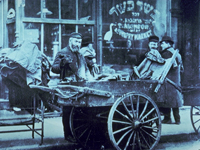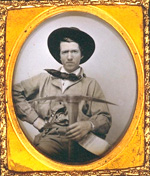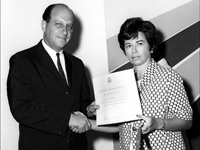The Gunpowder Plot
Gina DeAngelis, author of Colonial Williamsburg's interactive evening program, "The Gunpowder Plot," discusses the historical event on which the program is based. In the spring of 1775 in Williamsburg, VA, the royal governor of Virginia, Lord Dunmore, decided to remove the gunpowder stored in the Williamsburg powder magazine to prevent its being seized by colonists in the event of an uprising; the colonists learned about the plan, and the men sent to remove the gunpowder were met by armed militia. Click here to learn more about the gunpowder theft.


